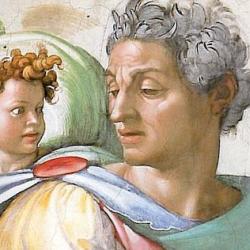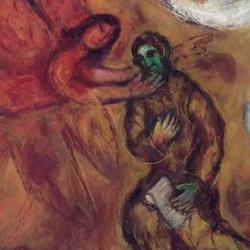Most translations say that the Beloved planted his vineyard on a “fertil hill,” but Isaiah wrote that He planted it on “a horn, a son of oil” (Heb. beqeren ben-shamen ). Phrase might refer to a fertile hill, but that’s not what the words mean.
The passage closest to Isaiah’s usage is in Zechariah 4, where the two olive trees are called “sons of oil” (v. 14). In Zechariah, the phrase refers to Zerubbabel and Joshua, the two anointed ones who lead the post-exilic community. Zechariah doesn’t use the word “horn,” but it fits the context, since the anointed ones are anointed from horns filled with oil, and become the horns of Israel, the victorious wild ox.
What would it mean to say that Yahweh had a vineyard on a “horn, a son of oil”? Verse 7 says that vineyard is “the house of Israel” and the men of Judah are the “delightful plant” within the vineyard. That vineyard was planted “on” the anointed one, David and his descendants. The links are complex but fairly clear: David is anointed, hence a “son of oil”; Yahweh regularly raises David’s horn on high; David is also mountain “horn” on which Israel rests.
Maybe. But that doesn’t satisfy.










